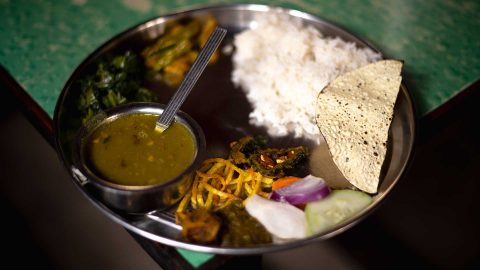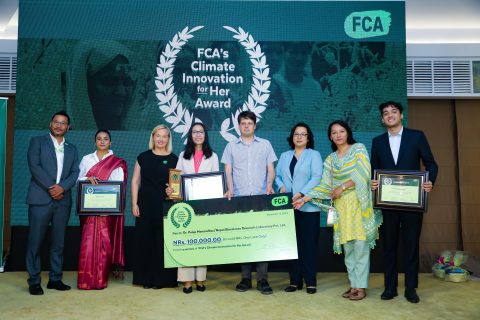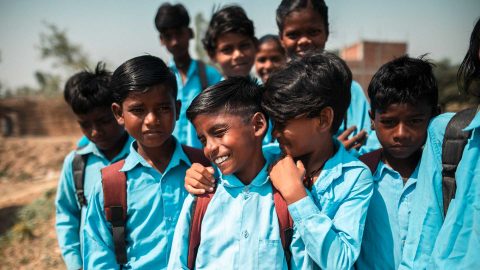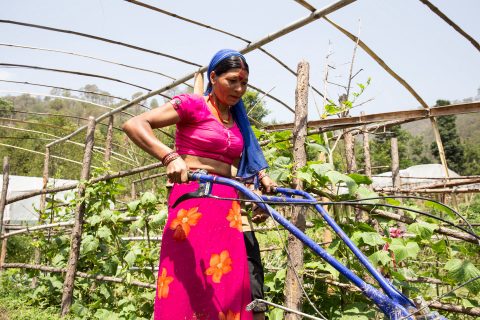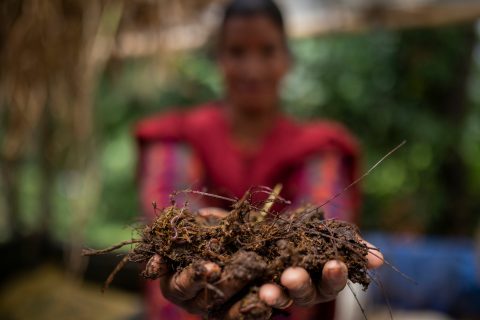‘At night I was afraid someone would come’: In Nepal, girls are still banished to so-called ‘menstruation huts’.
FCA works for gender equality and menstrual hygiene rights, so that girls and women have the opportunity to take control of their own lives.
Text: Elisa Rimaila
Photos: Antti Yrjönen
TO GET INTO THE HUT, you have to take a big leap up. That’s good, because otherwise snakes and various ground-dwelling insects would find it easier to surprise those sleeping in thisdoorless shack. This is where Nepali Laxmi Sarki, 27, has spent five nights every month for the past almost nine years – ever since her period began.
“At night I was afraid that someone would come. We live on the edge of a national park and there are also a lot of snakes there,” says Sarki.
There are real risks to sleeping alone outside, isolated from others. In Nepal, dozens of deaths have been linked to the practice of Chhaupadi over the last decade. Chhaupadi is the isolation of girls and women in so-called “menstruation huts” during their period and is still practised in some communities, despite being illegal in Nepal since 2005. The deaths are most often caused by bites from poisonous snakes or by carbon monoxide gas from wood stoves that provide heat. Of course, girls and women in isolation are also vulnerable to sexual violence.
The practice of isolation during menstruation stems from the long-held idea that girls and women are unclean during their periods. Therefore, they should ‘protect’ other family members from illness and bad luck by sleeping in isolation for five nights from the day their period begins.
“I feel bad that this has to be done, but all the women here are in the same situation,” says Sarki.
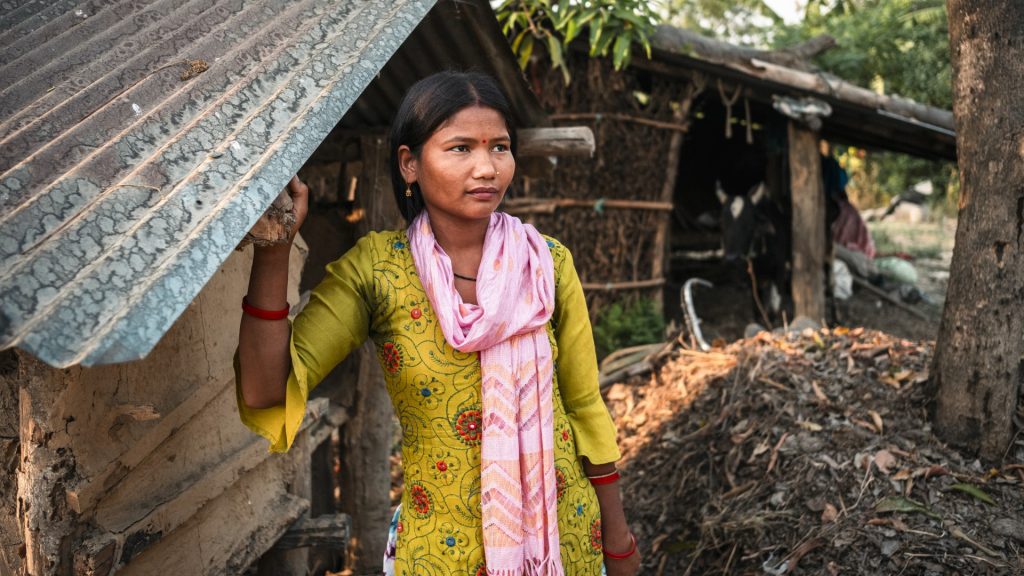
Women’s household chores change during the menstrual cycle. For example, they are not allowed to fetch water for their family, or even to water their vegetable garden or take part in cooking. The severity of restrictions and isolation varies from place to place.
In Sarki’s Dalit community in Kanchanpur district, FCA has been working with its local partner organisation NEEDS Nepal to support women’s equality and livelihood opportunities. The work targets particularly vulnerable women.
In addition to training on economics and business, FCA’s work in Nepal has also included sections on gender equality, such as taboos related to the menstrual cycle and the harmful Chhaupadi tradition. This led to the construction of women’s safe houses in communities where women can come during their periods, according to Srijana Joshi, a local expert at NEEDS Nepal.
“It is a testament to the strength of the tradition that it has not been completely abandoned here, even though some of these women have been educated. Equality is still a long way off, but communities have identified harmful practices and this is a first step,” says Joshi.
Last year, Laxmi Sarki gave up her old hut, built of wood, tarpaulin and clay next to the cattle shed. In its place, his family has now built a small brick-built house with a real bed, a lockable door, electric lights and a fan.
“Now I feel safer,” she says.
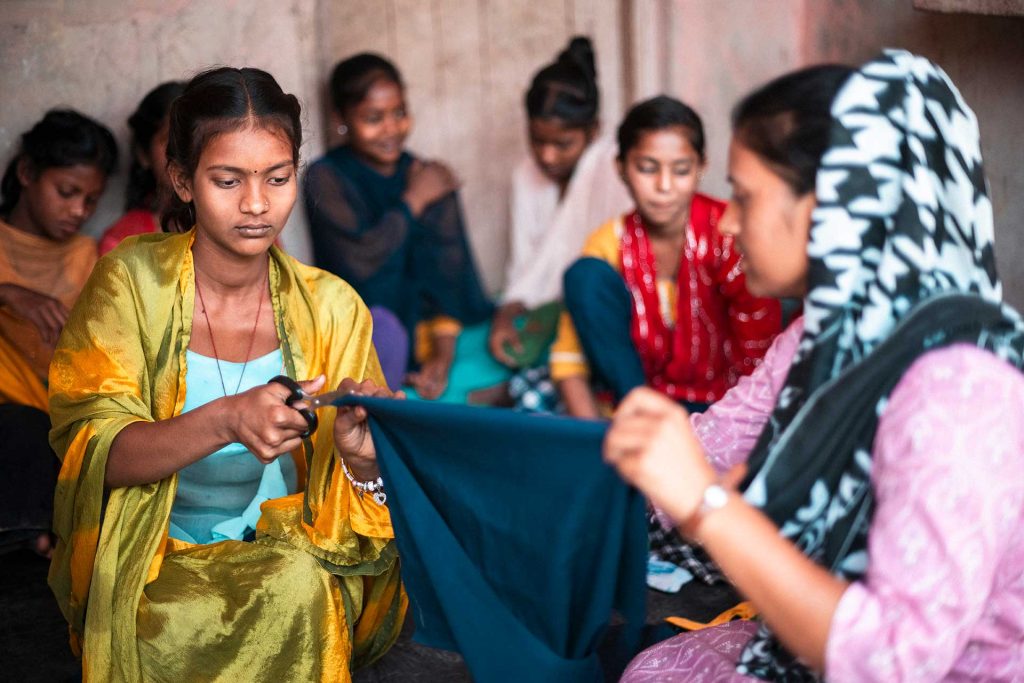
ABOUT 800 KILOMETERS east of Kanchanpur, twenty teenage girls are preparing to learn more about menstrual hygiene. This time, their teacher, community activist Poonam Mahara, is helping them finish sewing their own sanitary napkins.
“We use old saris as materials, fabric that you can find in everyone’s home,” says Mahara.
“I got the idea for the material and the design after watching a video on YouTube. I started thinking that this is a soft fabric and easy to wash and dry in the sun,” she continues.
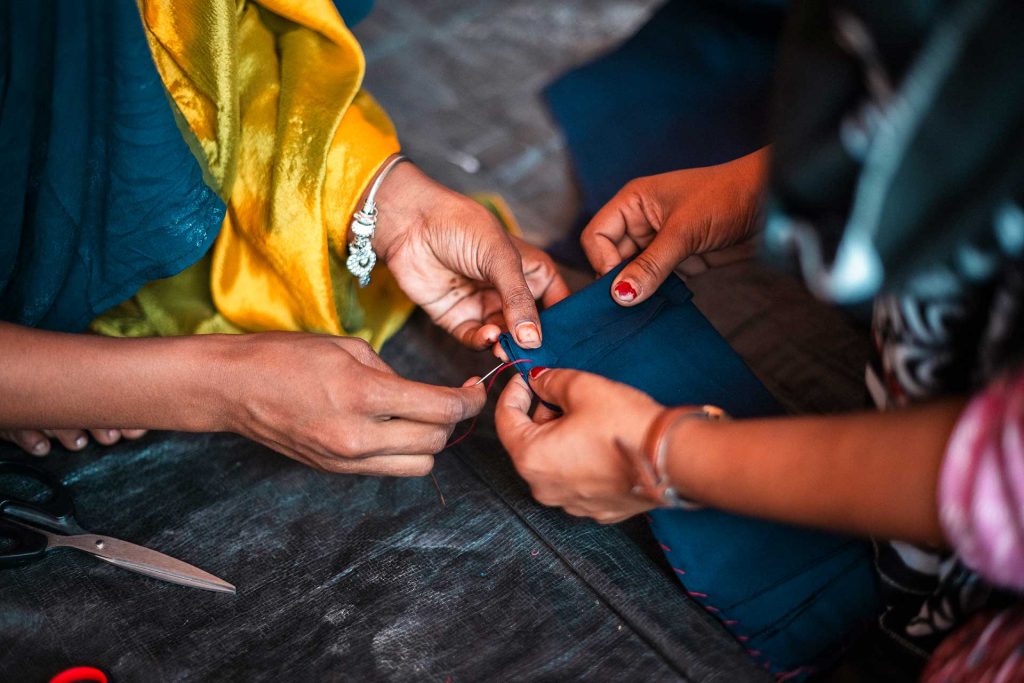
There is plenty of sunshine in Nepal’s southern Terai lowlands. At the time of the meeting, the temperature has climbed to 40 degrees Celsius, but fortunately it is possible to hold the lessons in the recess of a building that provides shade from the harshest sun. Carpets of dried grasses act as seating, as well as cooling the air.
Today’s group consists of 20 girls, aged between 10 and 19. Poonam Mahara has picked most of them up from their homes after talking to their parents. In this community, the girls’ lives are very limited and it is by no means a given that they will even get to school.
“Sometimes, especially at the beginning, it was difficult to get permission from their parents, but now I am already known in the community. When I started, I didn’t know many people,” says Poonam Mahara.
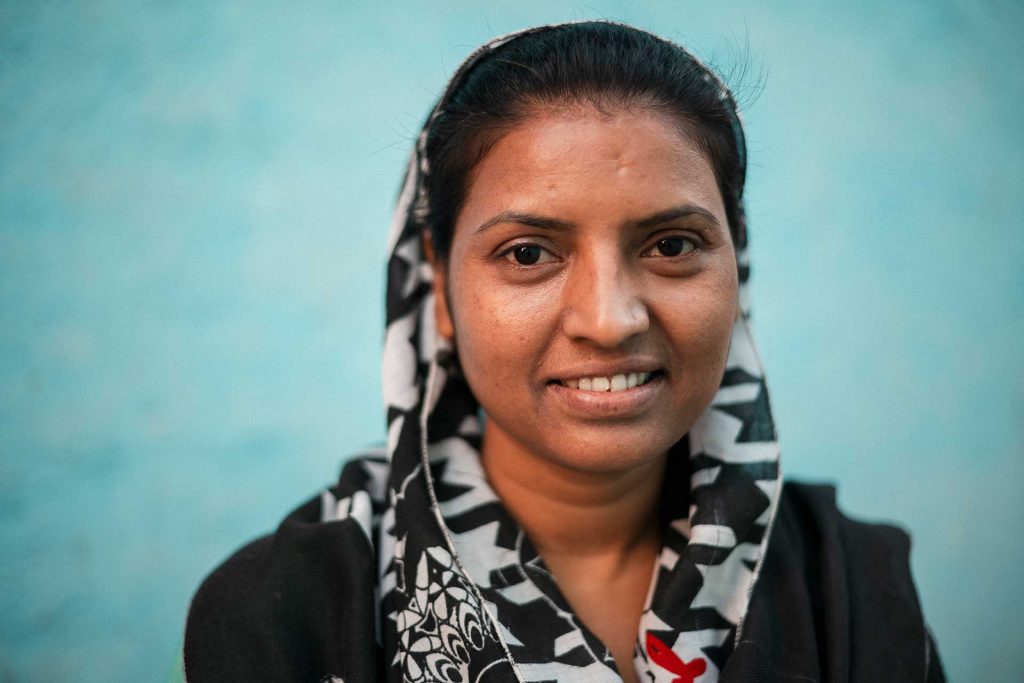
“In this culture, people tend to get married very young, and in these classes we also talk about why it’s important to take care of yourself and do things for yourself, not just focus on your responsibilities.”
Those responsibilities can start at a very young age, as girls move into their spouse’s home when they get married. Housework usually ends up being the responsibility of the young daughter-in-law under the supervision of her parents-in-law. The legal age for marriage in Nepal is now 20, but often girls, especially from the poorest families, are married or given in marriage by their parents at a much younger age, as young as 13 or 14.
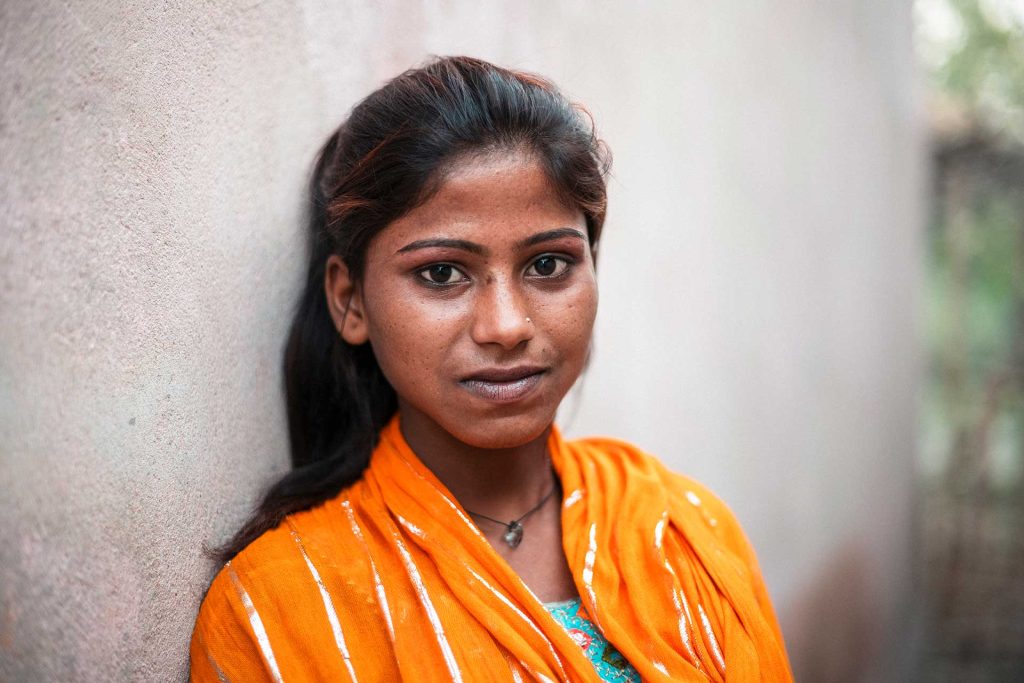
“At that age, the body is still changing a lot and there are other challenges associated with growing up. One of them is menstruation and especially not being able to afford menstrual pads,” says Poonam Mahara.
The project, supported by the FCA, started in December 2022 in a community in the Dhanusa region, based on the observation that many girls from marginalised groups lacked basic information about their own body functions and rights, and that child marriage was common.
“Menstruation is a taboo subject and the stigma around it makes it difficult to talk about menstruation to anyone, even within your own family. Menstruation is not considered a normal thing and that’s bad for everyone,” says Poonam Mahara.
When it comes to menstruation, it is strictly between women. Girls usually can’t even talk about it with their own brothers or fathers.
“Even if these girls get to school, they don’t get this kind of information about menstruation and so on at school. Teachers are usually men,” says Poonam Mahara.
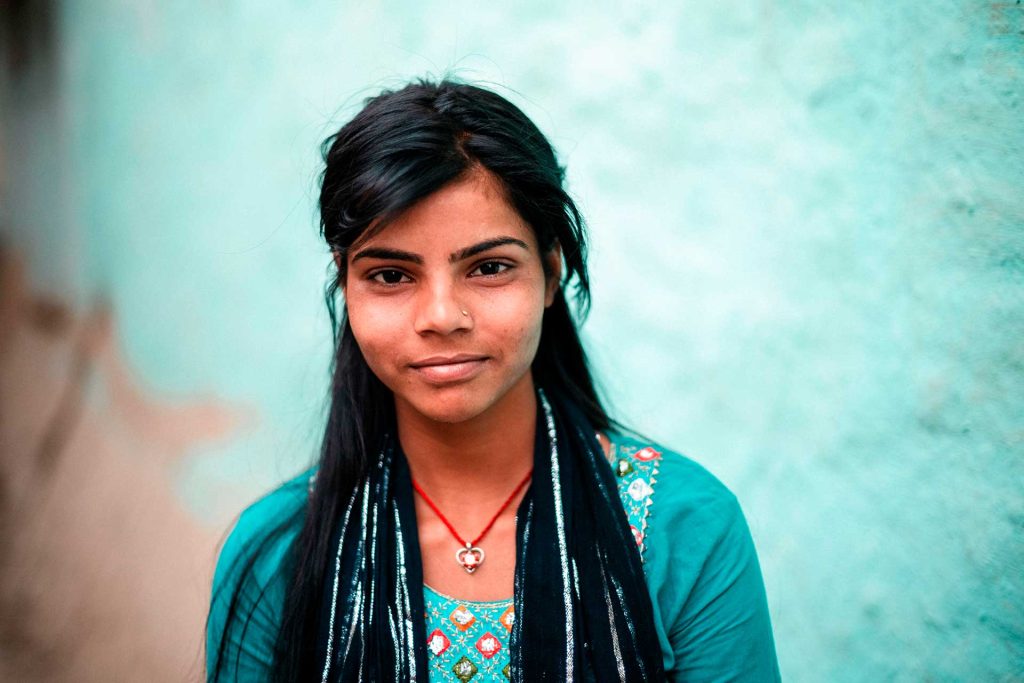
Kajol Mahara, 17, listening next to her, nods cautiously. She has learned to sew herself a proper sanitary napkin in FCA-supported training courses. Her family is poor and she cannot afford to buy her daughter menstrual pads. Many girls and women use some kind of folded piece of cloth to protect themselves.
“In the past, I had to miss school during my period because I didn’t have proper protection. Now I don’t have to,” says Kajol Mahara.
Poonam Mahara herself comes from the same community. She studied in Kathmandu, the capital of Nepal. It was only after her marriage and return to her home community that she realised how many problems there were in the lives of girls and women. That’s why she wanted to help.
“I’ve also received a huge amount of support from my mother-in-law. She has encouraged me along the way and is like a mother to me. I love her so much,” Poonam Mahara rejoices.
Mother-in-law Sarabati Mahara appears at the same moment. She says that she herself has learned a lot about menstruation and women’s rights from her daughter-in-law.
“Our family are poor farmers, but my daughter-in-law is educated. It’s great that she can do this kind of work and doesn’t just have to stay at home. Because she is working, my grandchildren will also get a good education.”
